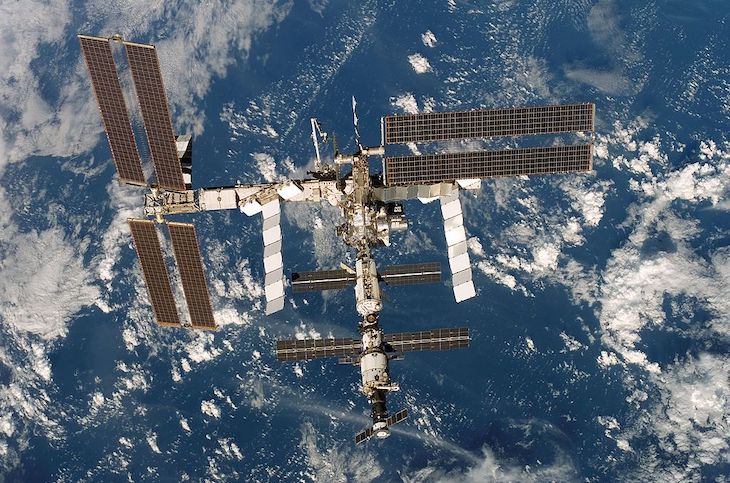Brits have, for many years, taken a back seat in the Space Race, but that could soon change. An all-UK team of astronauts could soon be heading into orbit, as a result of a deal signed by the UK Space Agency and Axiom Space, an American company that organises visits to the International Space Station (ISS). If the mission gets off the ground – and that does remain a big ‘if’ – it will remove a stain that has marked Britain since the 1950s when we ceded our space ambitions to America.
In the early days of the Space Race, there were three competing powers: the Soviets, the US and Britain. But the UK – despite successfully developing its own orbital launch capability, a rocket named Black Arrow – effectively fell out of the race before it really took off. The last Black Arrow rocket is collecting dust in the Science Museum in South Kensington, a monument to what might have been. After its successful launch in 1971, Ted Heath’s government axed the project on cost grounds. It was a huge failure of national aspiration.
Now, though, this latest British mission could help restore some pride. It’s wise, perhaps, not to get too excited yet: no crew has been named and the destination of the project – which will cost £200 million, funded commercially – has not been announced. But for British space enthusiasts there are plenty of reasons to be optimistic.
This latest British mission could help restore some pride
In addition to the new Axiom deal, we have at least three companies working to make vertical space launch happen in the UK – including the Ukrainian-British firm Skyrora in Edinburgh, which aims to launch from the Shetlands, and a Danish firm called Orbex, which is building a space hub in the Highlands. These firms were pipped at the post to win the accolade of conducting the first space launch from Western European soil, achieved by a Spanish firm, PLD Space, earlier this month. But still, it seems likely that, within five years, possibly sooner, satellites will enter orbit having been launched from UK soil.
David Cameron’s government deserves some credit here. In 2010, the UK Space Agency was set up. Its introduction marked a welcome change from that of its cautious predecessor, the British National Space Centre. For the first time in decades, decent money was piled into Britain’s space industry. In 2012, George Osborne, the chancellor, announced £300 million in funding for space science over five years. Stroll forward a few years – and prime ministers – and Boris Johnson’s government signalled the UK’s commitment to space by setting up a so-called ‘UK space command’, in High Wycombe of all places. All very Dan Dare. Britain is also involved in Nasa’s Artemis mission to return mankind to the Moon in 2025 through the European Space Agency.
While Britain is clearly a minnow in the Space Race compared to the United States, these things – together with the Axiom mission – have helped put Britain back in a lane it voluntarily left in the 1960s and 1970s. That decision to back out was a historic mistake.
Some scientists think that Blue Streak, an intermediate-range ballistic missile (IRBM), which first took flight in 1964, could have done the job in getting a British astronaut into orbit. In fact, no less an aviation authority than Geoffrey de Havilland, whose firm built the rocket, said as much in his biography, Sky Fever.
‘It is within the performance of a Blue Streak multi-stage rocket to put a manned capsule into orbit a few hundred miles above Earth (say a 2,000-lb capsule at 300 miles above the Earth),’ he wrote.
Instead Blue Streak was cancelled as a military programme in 1960. To spare the government’s blushes, the rocket was incorporated into a civilian satellite launcher called Black Prince. But following various failures and mounting costs, the project – which was morphed into the wider European Launcher Development Organisation – was canned completely in 1972. By then, the Soviets and Americans dominated the Space Race and Brits were left pondering a missed opportunity. We had pulled the handbrake on extra-terrestrial national ambition and decided instead to focus on satellites.
That pivot, albeit less glamorous than sending men to the Moon, has paid off: Britain is one of the world’s leaders in satellites. But it’s impossible to know the costs of Britain’s voluntary surrender of its hard-fought space launch capability and the decision not to boldly go in any way, shape or form.
So hats off to this eye-catching initiative to send British astronauts into space once again with Axiom. Space is expensive and hard, but as India – among others – has shown only recently, there’s no reason not to look to the stars, or to dream. Nor is there any good reason why the Brits shouldn’t be there too.






Comments